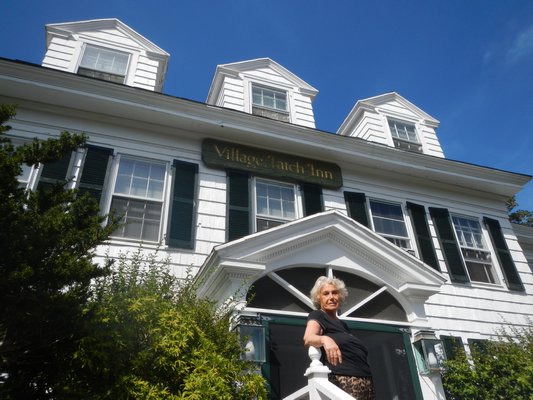
Summer with its whirlwind of festivities and fun can also be time of consternation for those who feel the sting of rentals gone awry. The growing demand for website-driven summer rentals like vrbo.com and airbnb.com has rankled some neighbors and nicked the lodging business in Southampton Village.
In previous years, Chris Allen, owner of The Butler’s Manor, a bed-and-breakfast in the village, could see no difference in his business with the onset of Airbnb and the like, which link property owners with short-term renters. “This year, I had a lot of cancellations,” he said last week. “We never have vacancies in August, and I had two last night!”
“These Airbnbs are kicking us by under-charging, having no regulations, no insurance. How can I compete?” he said, noting that he pays premium sales taxes and hotel taxes, which homeowners who rent through Airbnb are not required to do.
“I cannot believe how much it’s hurting our business,” said Marta White, owner of The Village Latch Inn on Hill Street. “This season has been hurting. We are down. We’re trying to figure out why, and we feel a good part of it is because of that website,” she said, referring to Airbnb. In fact, prospective guests have even told her that they were looking at places to rent on that site, and she never heard from them again.
“We’re frustrated that the village is not doing anything quickly,” said Mr. Allen. “The whole summer season is gone. We’ve lost income to Airbnb—and we haven’t had a banner year.”
Adding a layer of complexity to the issue, some of these rentals are houses in foreclosure. Owned by banks, these homes are essentially being “squatted in,” said Southampton Village Mayor Mark Epley. Making matters worse, banks occasionally deny owning them, making it difficult for the municipality to know whom to cite for grievances. One such house is on Hill Street.
Former Southampton Village Trustee Harald Steudte, who has been legally renting a house he owns on the corner of Hill Street and Tuckahoe Lane, was fielding complaints from his tenants that their next-door neighbors were being loud and disruptive. “The police came, another neighbor complained that they were having loud parties, taxis were coming to pick up early in the morning. So what we have is a party house,” he said.
Mr. Steudte found the house listed on Airbnb, and eventually discovered through public records that Chase Bank has been listed as its owner since 2011, when the previous owners presumably defaulted on their mortgage.
After the village cited Chase for a new fence on the property that was 2 feet over what the code permits, a lawyer for the bank denied owning the home in court, and the case continues to be adjourned, according to Mr. Steudte.
“This is an Airbnb house owned by Chase Bank,” the former village trustee said. “If I were running a house of ill repute, would they keep adjourning this in court? No!”
“It was on Airbnb for two times in the beginning of the season and then it was taken off,” said Charles Regensburg, who claims he owns the home through a limited liability corporation, 819 Hill Street LLC. The contract to purchase the house was finalized in February of this year, but Mr. Regensburg is waiting for Chase to transfer a clear deed to the LLC, as it has several judgments against the title, he explained.
The house had been rented through the website toward the latter part of July through an independent booking agent, but “I realized it really wasn’t fitting the criteria of the neighborhood and who I was renting to, and I disengaged from it,” Mr. Regensburg added. The house no longer appears on the website.
Since then, Mr. Regensburg said he has not been renting and instead letting friends and family stay there. “Next year, if I do proceed with a rental, it will be through the Village of Southampton,” he added.
“I think what’s really happening is that [services like] Uber and Airbnb are moving so fast with the technology, and the code enforcement process that we have in our books is antiquated and can’t keep up,” said Mr. Steudte.
“We don’t have a rental law in place like some of the other municipalities around that force property owners to have a rental permit,” Mr. Epley explained. “And part of the problem is purely staffing, because a program like that requires multiple staff members to manage a program like that.”
Houses renting for the short term through sites like Airbnb are, in fact, in violation of the village’s transient housing code; however, proving it is onerous. “It’s very difficult to gather data on misuse of private property when it comes to the rental piece,” said Mr, Epley, noting the need for willing participants to admit they have rented their houses, which of course, is highly unlikely. “You really need very specific situations that can stand up in the court of law.”
The mayor recently sent a letter to the president of Airbnb demanding that all of the houses listed in Southampton Village be taken off the website. “It’s an intriguing way to have people come and visit and enjoy the area, but we’ve got to put some stuff in place to help protect the neighborhoods and help protect the consumers and help protect the operators that are operating within the bounds of the law,” Mr. Epley said.
He had “just” sent the letter and had not yet heard back, he said. “We’ll see if they cooperate.”